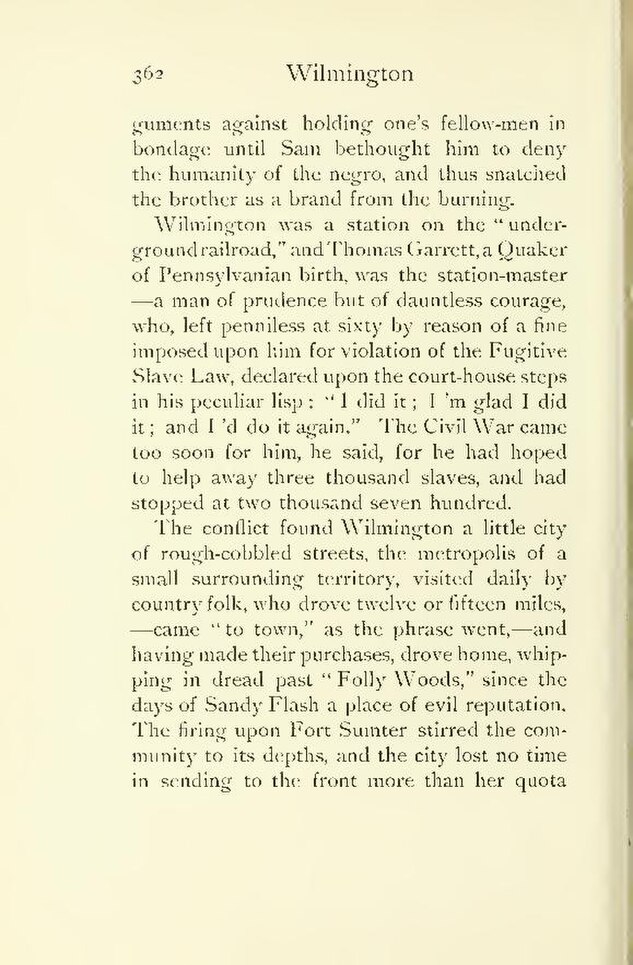- guments against holding one's fellow-men in
bondage until Sam bethought him to deny the humanity of the negro, and thus snatched the brother as a brand from the burning.
Wilmington was a station on the "under-*ground railroad," and Thomas Garrett, a Quaker of Pennsylvanian birth, was the station-master—a man of prudence but of dauntless courage, who, left penniless at sixty by reason of a fine imposed upon him for violation of the Fugitive Slave Law, declared upon the court-house steps in his peculiar lisp: "I did it; I'm glad I did it; and I'd do it again." The Civil War came too soon for him, he said, for he had hoped to help away three thousand slaves, and had stopped at two thousand seven hundred.
The conflict found Wilmington a little city of rough-cobbled streets, the metropolis of a small surrounding territory, visited daily by country folk, who drove twelve or fifteen miles,—came "to town," as the phrase went,—and having made their purchases, drove home, whipping in dread past "Folly Woods," since the days of Sandy Flash a place of evil reputation. The firing upon Fort Sumter stirred the community to its depths, and the city lost no time in sending to the front more than her quota
